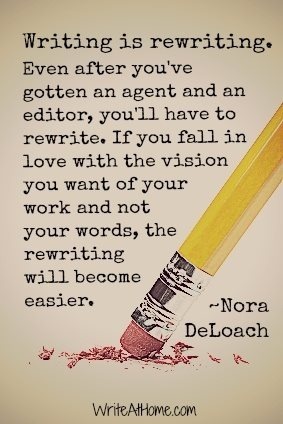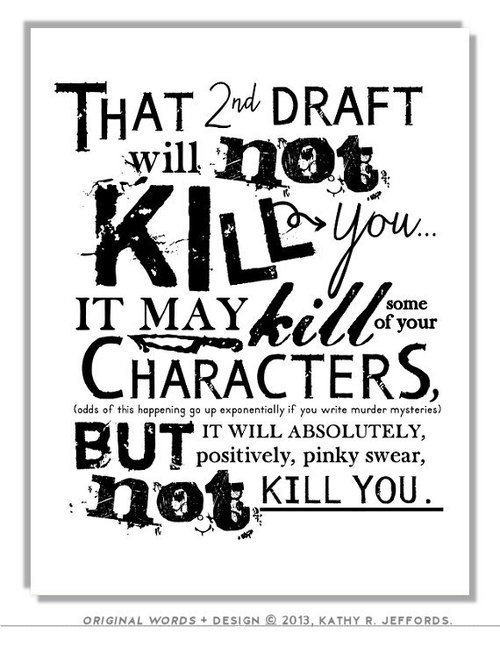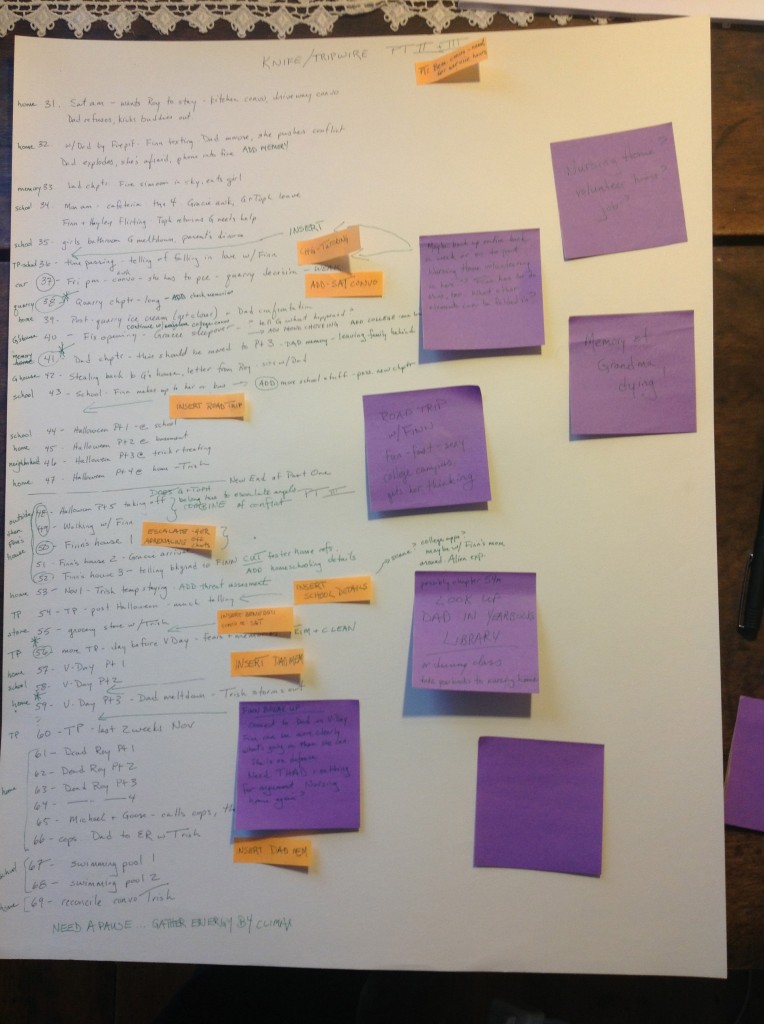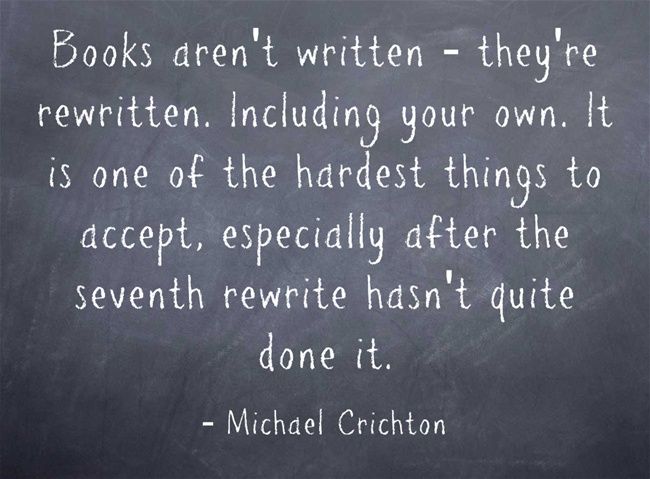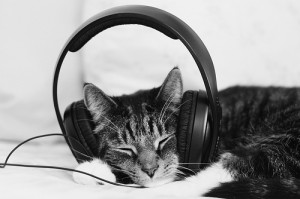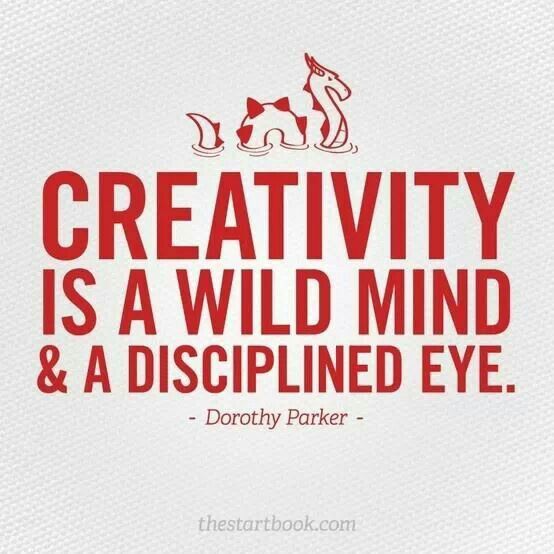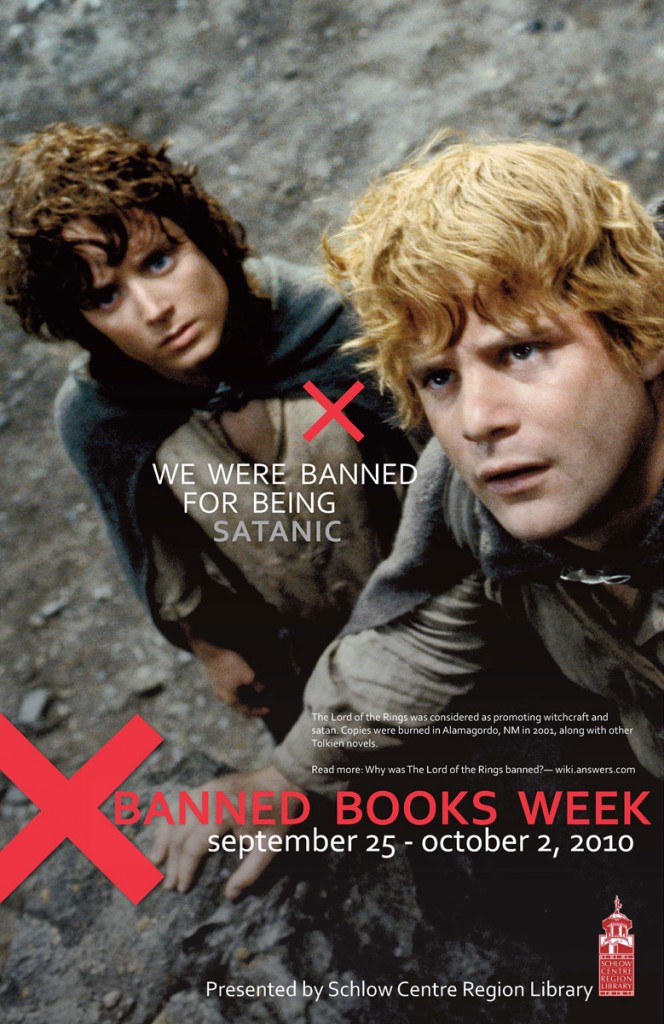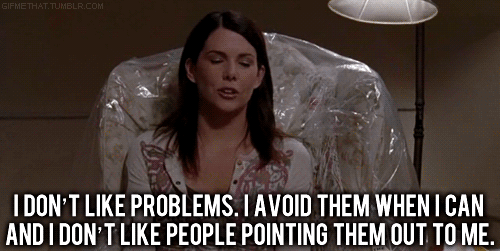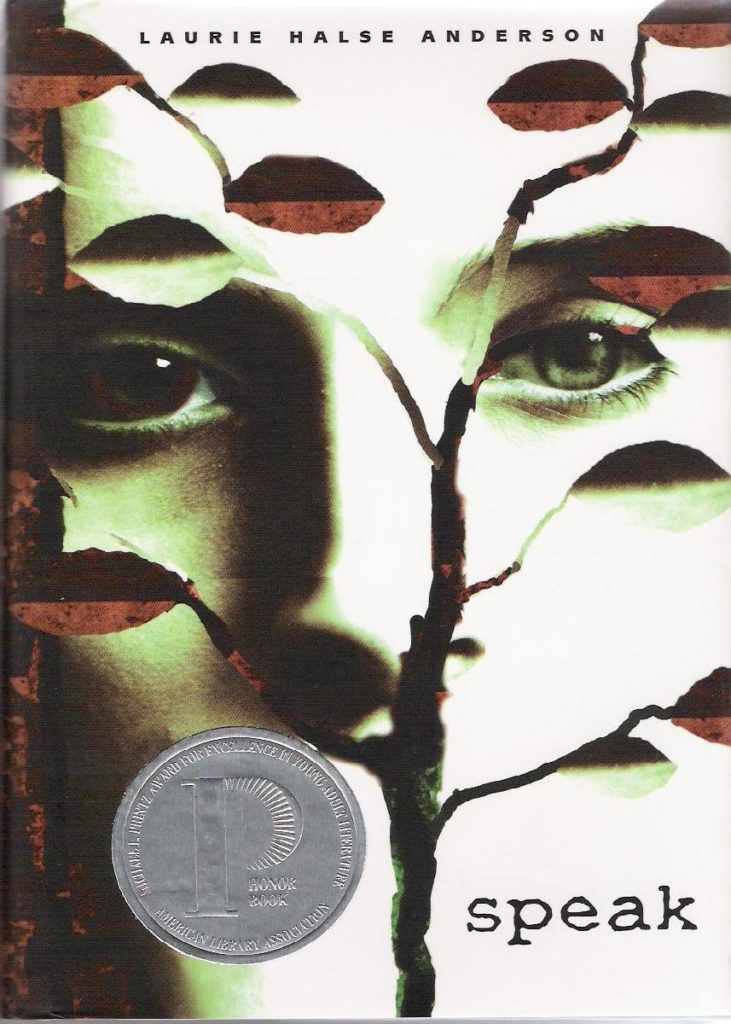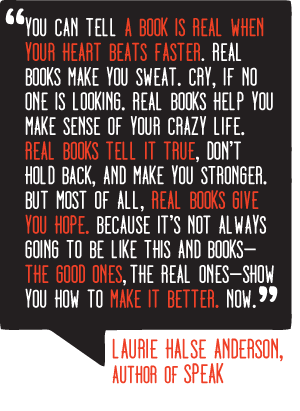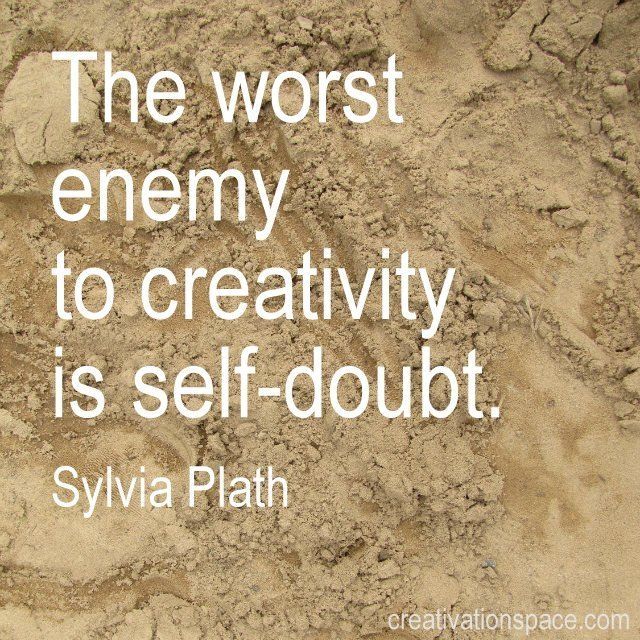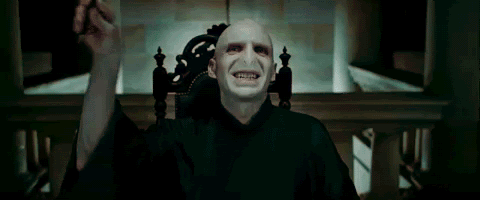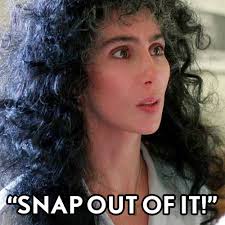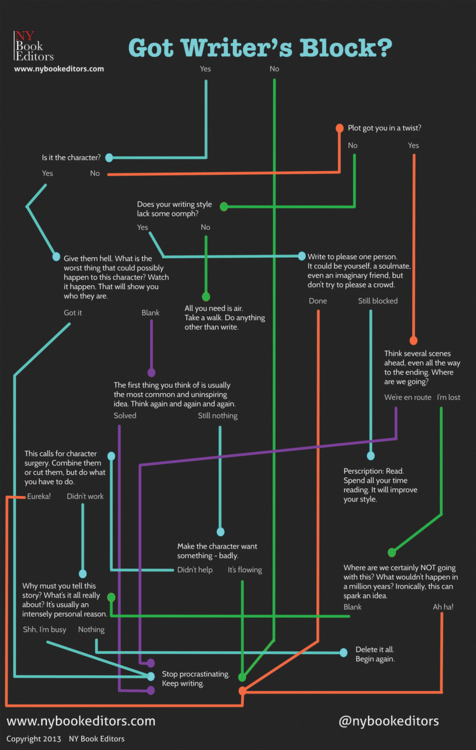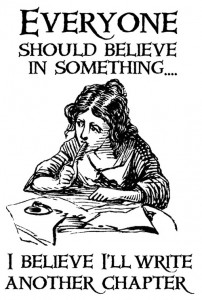The process of Boiling Down The Bones (aka Revision) is the hardest part of the writing process to teach, but I'll give a shot.
I'm starting with one massive assumption – you understand that nobody writes a publishable first draft and everyone's work can be made better with revision. For the record, my novels usually go through eight drafts.
I always work with two levels of revision: LOGIC and POLISH. Today is LOGIC day.
The goal of the LOGIC edit is simple: make sure each scene flows smoothly and inevitably to the next.
I start with the biggest piece of paper I can find. On this I list all of the scenes of the book, summarizing them in as few words as possible (bullies corner Yoda, Tyler confronts bullies, bullies run off, etc.). You will likely have several different scenes within each chapter.
To the left of the summary line that I make a note of the date and time of day when each action takes place. To the right of each one I place an up arrow or a down arrow, indicating if the scene ends on a negative or positive emotional note for the main character. For a few books, I've noted the location of each scene as well.
Note: if the significant action in a scene is an important bit of dialog, add CONVO to the summary line.
What you end up with is a roadmap of sorts; an overview of your story all on the same page or two, depending on the size of your handwriting. (Some people prefer to use index cards – one card per scene – which they either pin to a line strung across a room, or lay out on the floor after they've penned up the children and pets. Do what makes you happy.)
Now the fun begins.
Forget about what you know about your story. Forget the backstory that you didn't put on the page, or the real-life situation that inspired a scene or the whole book. The goal is to see only what is on the page in front of you.
1. Which scenes can be removed without causing any major effect on your story? (I always find a bunch of these.) If a scene is not vital – if it doesn't further our understanding of a character or move the action forward – get rid of it. It's useless fluff. If the thought of cutting it causes your gallbladder to flare up, reconsider the scene itself: what changes can you make that will either further our understanding of a character or move the action forward (or both!)?
Draw a line thru the scenes you want to cut.
Sometimes a scene seems out of place, or you realize that the scene is important, but you haven't set it up properly. Make a quick note (on a stickie if you're out of room) about where the scene should go and what you're missing.
2. Now read through your road map, paying attention this time to pacing. Are there sections that drag on, with scene after scene hitting the same emotional point without either adding to or dispersing tension? Are your sub-plots properly extended through the major narrative? Make a note of what needs to move where to tighten your pacing. I do this by drawing a lot of arrows. By the time I'm done, it looks like a battalion of drunken ants has staggered all over my roadmap.
3. Read through again, this time paying attention to your location notes. If all of the action in your book only happens in a small handful of locations, ponder this awhile. Is that really the right approach, or is there more you can do with the story by introducing new locations? In my new book (The Impossible Knife of Memory, comes out in Jan 2014), there are many scenes at the main character's house. Most of them have to be there, but a couple became much more powerful when I changed the location because the new setting allowed my characters to engage in actions that strengthened the narrative.
4. Go back to the scenes that you maked CONVO. Are they actual scenes, with action, or do you have two or more talking heads? Maybe you want talking heads, but be advised that too much of that reads like a screenplay.
Here is a real life roadmap from earlier this year showing my dissection of the last two-thirds of my new book (we abbreviate it to TIKOM around here) back when it was Draft 3 and very far away from being complete. (No one saw the manuscript until Draft 5.)
Once your road map is complete, you dive back into the manuscript, slicing, dicing, shredding, adding, and, believe it or not, enjoying yourself because making your story stronger always feels great.
Next post: How to POLISH.
Non-fiction prompt – Make a roadmap of your manuscript, or of the first ten chapters of a favorite book.
Fiction prompt – Take a scene from your book and flip it into an unexpected location. Instead of at school, move everyone to the zoo. (Where in the zoo? Specificity is everything!) Instead of the mall, put them in a subway car, or at a county fair where the rides are all run by creepy-looking carnies.
Fifteen minutes spent writing today could change your life.
scribble… scribble… scribble…

